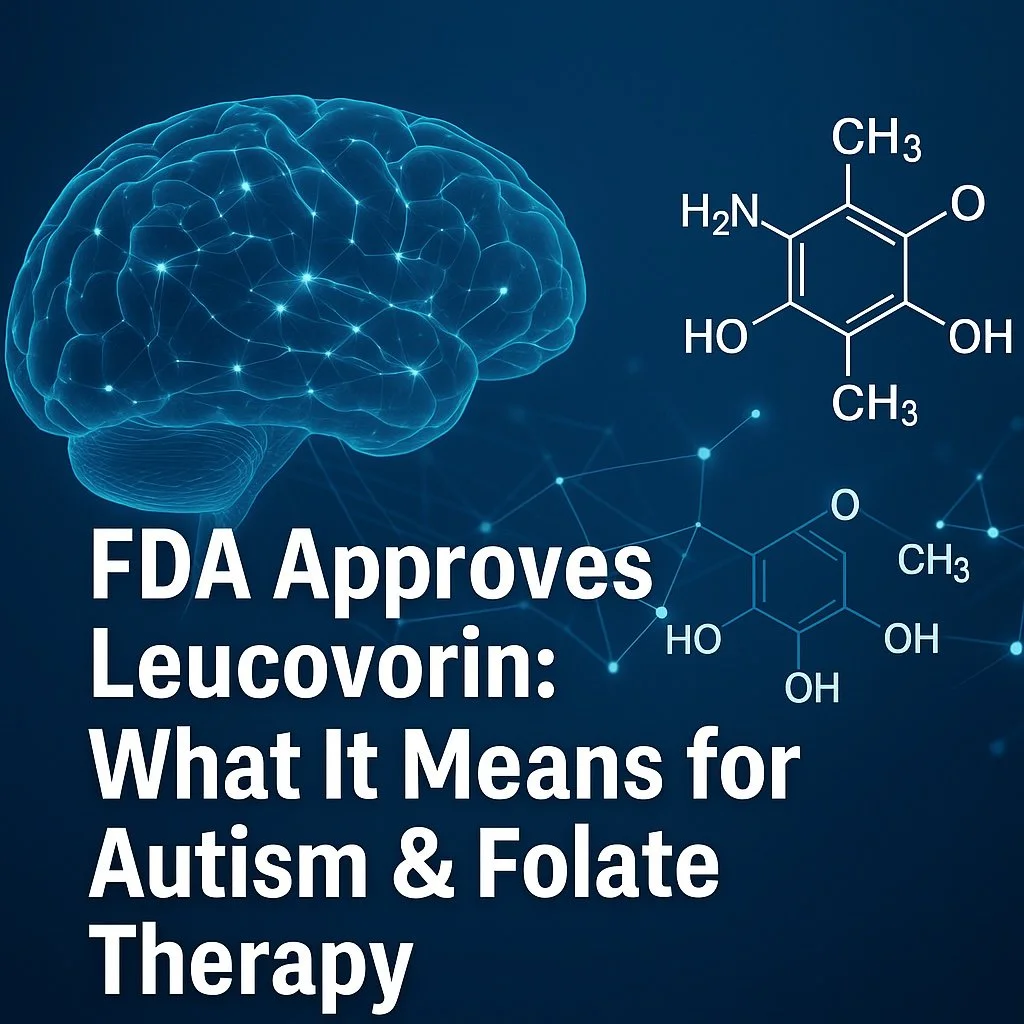The FDA’s recent move to approve leucovorin calcium for cerebral folate deficiency (CFD) brings new hope for a metabolic approach to autism. Explore how prescription leucovorin and over-the-counter folinic acid compare, the underlying folate biology, and how functional medicine clinicians can responsibly integrate this new option into autism care protocols.
Read MoreOne crucial yet often overlooked component of overall health in autism is the vagus nerve—a key player in the gut-brain connection, emotional regulation, and digestion. Let’s explore the role of the vagus nerve in autism and five effective ways to stimulate it for improved digestion, calming, and enhanced well-being.
Read MoreImpulsive behavior is a common challenge in children with Autism Spectrum Disorder (ASD) and Attention-Deficit/Hyperactivity Disorder (ADHD). These behaviors can manifest as difficulty waiting for turns, interrupting conversations, acting without thinking, or struggling to control emotional reactions. While impulsivity is often seen as a symptom, understanding its root causes can provide critical insight into effective interventions and support for these children. In this blog, we will explore the underlying factors contributing to impulsive behaviors in children with autism and ADHD, and provide practical strategies for addressing these behaviors holistically.
Read MoreWhile camel milk may sound unconventional to some, scientific studies and anecdotal evidence suggest it has potential benefits for children with autism. In this blog, we'll explore how camel milk can play a role in an autism diet, discuss its benefits, and guide you on how to find reputable sources for this unique and nutritious beverage.
Read MoreThe study by D'Adamo et al. (2024) titled "Reversal of Autism Symptoms among Dizygotic Twins through a Personalized Lifestyle and Environmental Modification Approach: A Case Report and Review of the Literature" presents a fascinating case of dizygotic twins showing a significant reversal of autism symptoms. The research emphasizes the potential of individualized interventions focusing on lifestyle and environmental modifications. This summary delves into the methodology, findings, and implications of the case report, along with a brief review of the existing literature on autism interventions.
Read MoreAggression in individuals with autism spectrum disorder (ASD) can manifest in various forms, presenting significant challenges for both the individual and their caregivers. While autism itself is characterized by differences in social communication and behavior, aggression often arises from underlying medical issues. It's crucial to recognize and address these medical causes to better support individuals with autism and improve their quality of life. Among the potential medical contributors to aggression in autism are various pain-inducing conditions, gastrointestinal (GI) issues, chronic infections, medication side effects, hormonal imbalances, and nutritional deficiencies.
Read MoreOver the years, researchers have delved into various factors contributing to the etiology of ASD, and evidence suggests this development is multifactoral and one potential link is with vitamin D deficiency.
Read MoreWhile the etiology of autism remains multifaceted, research has shed light on the potential role of metabolic dysregulation and neurotransmitter imbalances in its pathophysiology. Among the alternative therapies gaining traction in the autism community, the ketogenic diet has garnered attention for its potential to ameliorate symptoms and improve overall well-being.
Read MoreResearch has shown that a combination of genetic, epigenetic, and environmental factors play significant roles in its development. Understanding these multifaceted influences is crucial for advancing our knowledge of autism and developing effective interventions.
Read MoreThe Organic Acid Test is a non-invasive, urine-based test that analyzes various organic acids produced as metabolic byproducts in the body. These organic acids serve as indicators of cellular health and can provide valuable information about metabolic functions, nutrient deficiencies, and potential toxic exposures. In the context of autism and ADHD, the OAT becomes a powerful tool for uncovering underlying imbalances that may contribute to these neurodevelopmental disorders.
Read MoreChildren diagnosed with autism spectrum disorder (ASD) and attention-deficit/hyperactivity disorder (ADHD) often face challenges related to both their neurological health and gastrointestinal (GI) symptoms. As a pediatric nutritionist specializing in these conditions, it's crucial to explore holistic and evidence-based approaches to improve the overall well-being of these children. In recent years, the potential benefits of probiotics on neurological health and GI symptoms have gained attention, offering a promising avenue for intervention.
Read More










